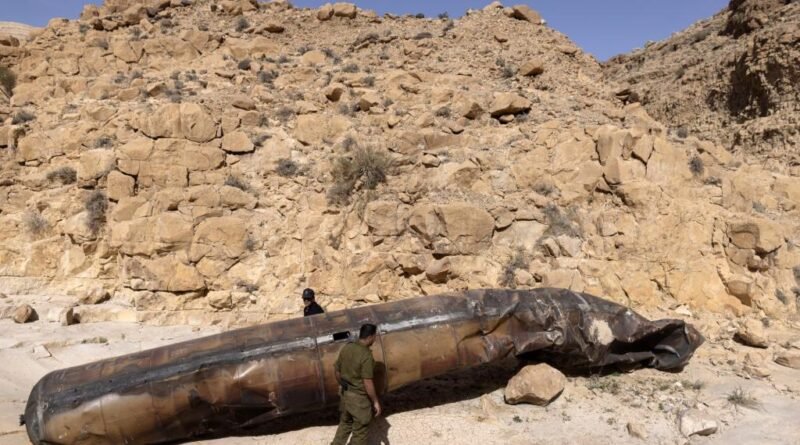Iran has voluntarily stripped its nuclear capabilities

Details of the recent limited Israeli retaliatory strike against Iranian anti-aircraft missile batteries at Isfahan are still sketchy. However, we can draw some conclusions.
Israel’s small volley of missiles hit their intended targets, pinpointing the exact launchers designed to intercept such incoming ordnance.
The strike was in close proximity to the Natanz enrichment facility. This intentional choice was to demonstrate to Iran that they could eliminate the anti-missile battery meant to defend the nearby nuclear facility.
The overall message conveyed to the world was that Israel could launch a retaliatory attack on Iranian nuclear sites with a high degree of confidence that the incoming attacks could not be stopped.
In contrast, Iran’s previous strike on Israel was more extensive and less discriminating.
The attack was largely unsuccessful, with an estimated failure rate of over 99% for the drones, cruise missiles, and ballistic missiles targeting Israel.
Reports indicate that more than half of Iran’s roughly 115-120 ballistic missiles either failed at launch or malfunctioned during flight.
These facts highlight a sobering reality that challenges Iran’s constant assertions of developing a nuclear arsenal capable of wiping out Israel.
Consider the dire scenarios that could unfold if Iranian nuclear missiles were launched at Israel, passing over countries like Syria, Iraq, Saudi Arabia, Jordan, the West Bank, or Gaza.
For Jordan and Saudi Arabia, such trajectories would be considered acts of war, especially as some of Iran’s recent attacks were intercepted over Arab territories before reaching Israel.
Iran’s aggression led Arab nations, the US, the UK, and France to collaborate in destroying a majority of Iran’s drones.
Iran now faces the prospect of confronting sophisticated aerial opposition if it ever attempts a nuclear strike.
Even if half of Iran’s ballistic missiles were launched successfully, only a fraction reached their intended targets, contrasting with Israel’s successful strike on Iranian missile batteries.
There is a possibility that any Iranian nuclear-tipped missile aimed at Israel could pose as much threat to Iran and its neighbors as it does to Israel.
If launched, there is a high likelihood that these missiles would be neutralized before detonating over Israel.
Such a launch would trigger an immediate Israeli response, with a high probability of evading Iran’s countermeasures and hitting their targets.
With both Iran and Israel vulnerable to attacks, the mystique of the Iranian nuclear threat has diminished.
The theocracy’s ability to leverage the threat of a nuclear attack on Israel for political gain has weakened.
The new reality is that Iran has provoked an Israel armed with nuclear weapons and advanced military capabilities.
Tehran lacks the capability to defend against these weapons or Israeli aircraft armed with nuclear ordnance.
The fear now for Iran is that launching nuclear missiles could result in failure, being intercepted, or causing internal damage to Iran itself.
The Iranian attack on Israel appears to be a significant miscalculation.
It exposed the ineffectiveness of an Iranian aerial assault amid their nuclear ambitions.
It highlighted Iran’s incompetence and hinted that they are as much a threat to themselves as they are to their enemies.
Iran’s actions have opened the door for Western powers to target Iran’s territory, previously considered off-limits.
The failure to counter a smaller Israeli response, coupled with the success of Israel and its allies in thwarting a larger Iranian attack, underscores the weakness behind Iran’s aggressive rhetoric.
Meanwhile, the Iranian people…
They will inevitably realize that their theocracy’s attack on Israel had minimal impact and only elicited a symbolic Israeli response.
Thus, Iranians will understand their vulnerability and the potential consequences of their actions.
They will recognize that Israel has stronger allies than Iran and that their ballistic missiles may pose a greater risk to themselves than their intended targets.
As a result, they may conclude that Iran’s true enemies are not the Jewish people of Israel but their own radical Islamist leaders.



